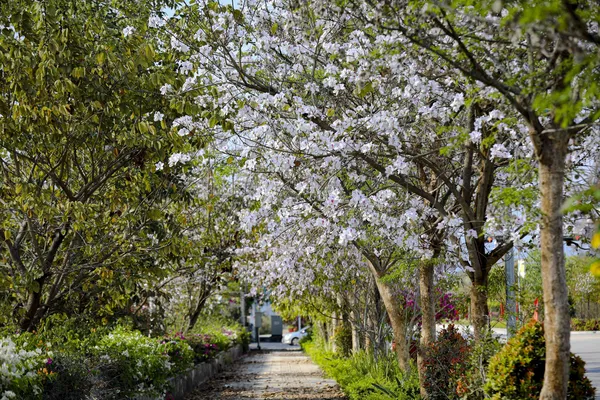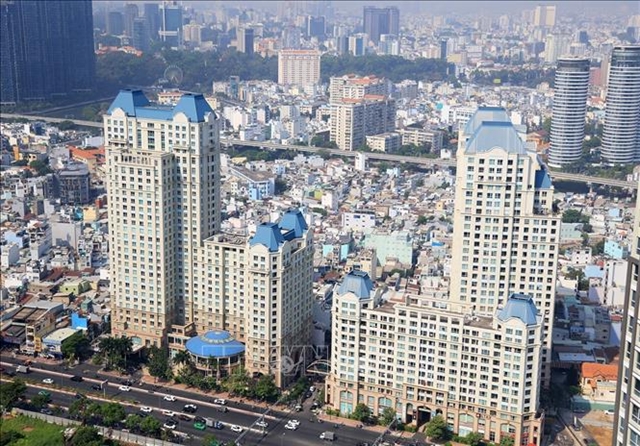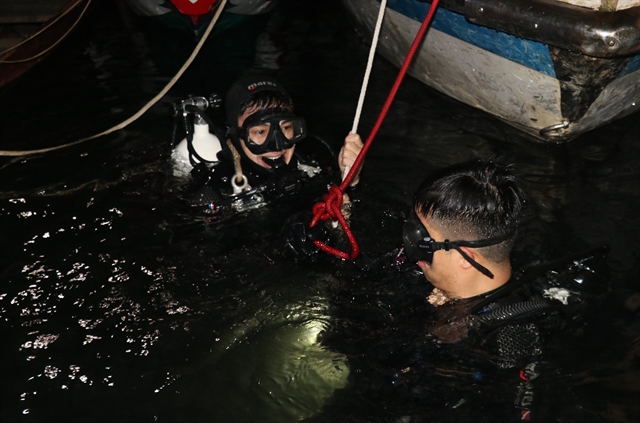 Society
Society
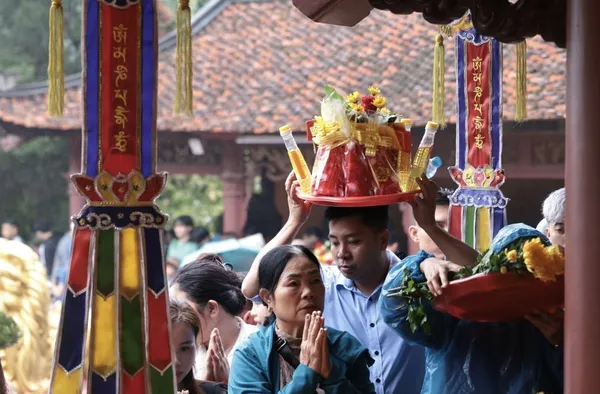
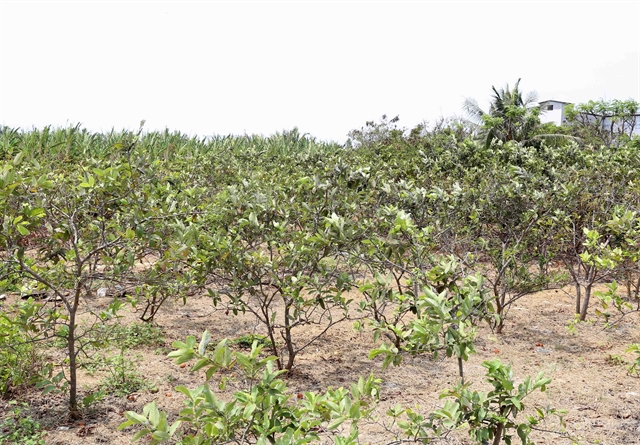
|
| A fruit orchard in Tiền Giang Province’s Gò Công Town faces a shortage of irrigation water. – VNA/VNS Photo Vũ Sinh |
HCM CITY – Saltwater intrusion has affected many fruit growing areas in the Cửu Long (Mekong) Delta as farmers struggle to secure irrigation water for their orchards.
The delta, the country’s largest fruit producer, is facing severe saltwater intrusion in the ongoing dry season, which has exceeded the record set in the 2015- 16 dry season.
In Chợ Lách District, which has the largest fruit growing area in Bến Tre Province, saltwater is threatening 20,000ha of fruits and 1,300ha of plant seedlings, flowers and ornamental plants, according to the district’s Bureau of Agriculture and Rural Development.
Bùi Thanh Liêm, head of the bureau, said farmers have carried out measures like closing sluices and building temporary dams, using huge plastic bags to store irrigation water for fruit trees.
They also have been using barges, boats and vehicles to transport irrigation from other places to the district.
However, many fruit trees have been damaged because of saltwater intrusion which could increase if saltwater intrusion continues a long time.
In Tiền Giang, which is the delta’s largest fruit growing province, more than 36,000ha of fruits, including 12,000ha of durian in Cái Bè, Cai Lậy and Châu Thành districts and Cai Lậy Town, are facing water shortage, according to the province’s Department of Agriculture and Rural Development.
Ngô Văn Mười, who has had a 7,000 sq.m durian orchard for 14 years in Cay Lậy District, said his family did not have irrigation water over the past month.
“Seeing the durian trees dying, I feel so sad,” he said.
Many farmers in Tiền Giang have to buy water at a high price to irrigate orchards, mostly for durian which has high economic value.
To help durian farmers, the Tiền Giang People’s Committee has hired barges to transport irrigation water.
The water supply will last until the end of next month.
Trần Hữu Phong, deputy chairman of the Châu Thành District People’s Committee in Tiền Giang, said the district has set up three sites to provide irrigation water for fruit orchards.
The district has mobilised vehicles to transport water to fruit orchards.
Before the 2019 - 20 dry season, authorities and farmers in the delta carried out measures to mitigate the impact of saltwater intrusion to rice, fruits and other crops, including changing rice farming schedules, building irrigation works and storing fresh water.
Under the instruction of authorities, most farmers in the delta sowed the 2019- 20 winter – spring rice crop one month early.
Therefore, rice farmers have nearly completed harvesting a bumper crop.
However, because of severe saltwater intrusion, many fruit growing areas in the delta have still been affected.
The ongoing saltwater intrusion could affect 130,000ha of the delta 300,000ha of fruits in the 2019 – 20 dry season, according to the Ministry of Agriculture and Rural Development.
Water with a salinity of 4 grammes per litre is expected to enter 45 - 95 km deep into the delta’s main rivers like Vàm Cỏ Đông, Vàm Cỏ Cây, Hàm Luông, Cổ Chiên, Hậu and Cái Lớn rivers between March 16 – 20, according to the National Centre for Hydro-Meteorology Forecasting.
Võ Hữu Thoại, deputy head of the Southern Horticultural Research Institute, said each type of fruit has a different salt tolerance and farmers should be careful in using irrigation water on their fruit trees.
Durian, rambutan, mangosteen, longan and banana, for instance, have a salt tolerance of 0.5 – 1 grammes per litre while coconut, sapodilla and tamarind have a salt tolerance of 5 – 6 grammes per litre. – VNS



